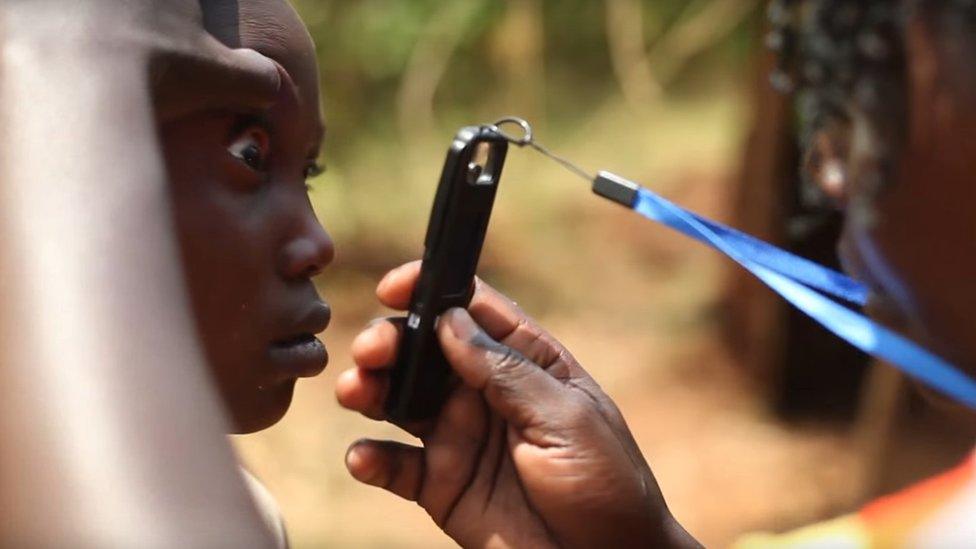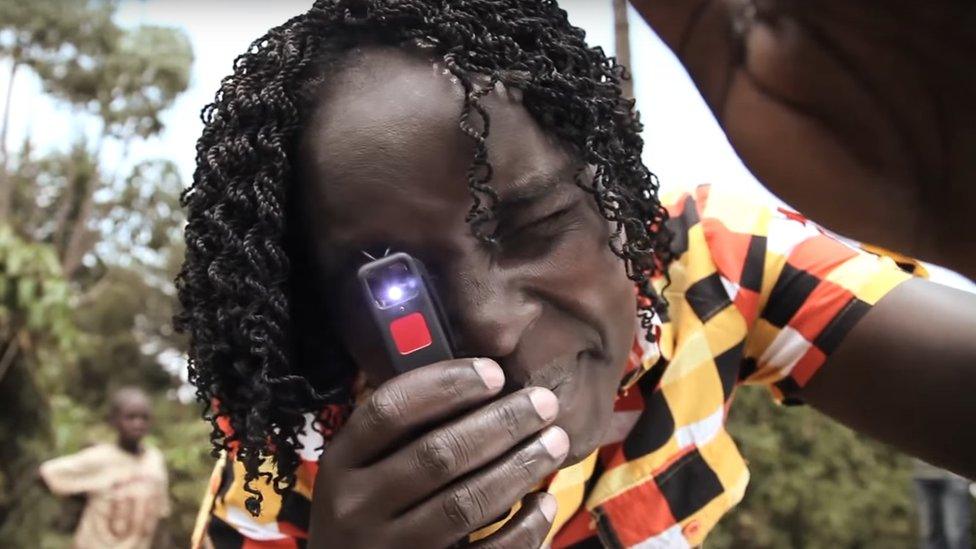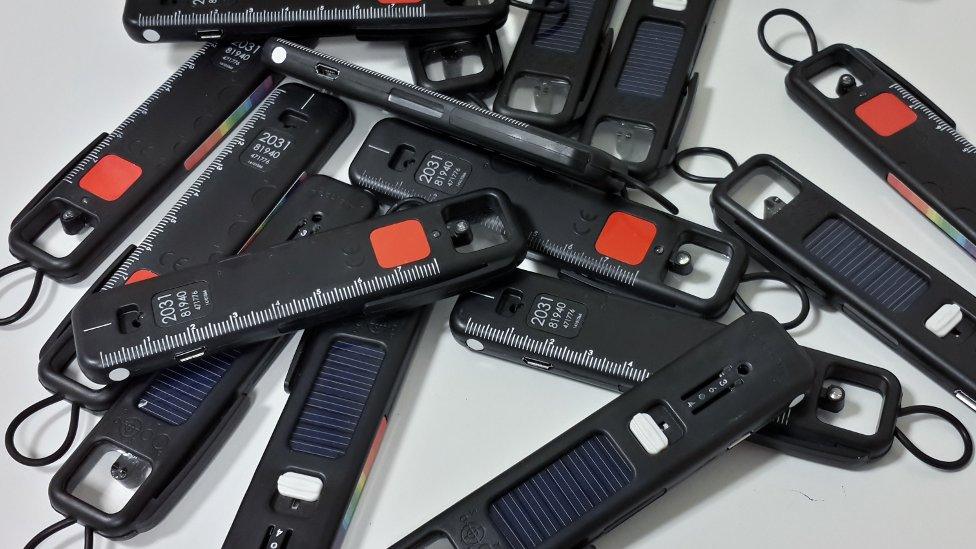Arclight device 'could save sight of millions'
- Published

The device allows healthcare workers to make very fast diagnostic decisions
A pocket-sized medical device could help save the sight of millions of people around the world, its inventors have claimed.
The Arclight, a cheap, solar-powered ophthalmoscope, was designed by researchers at St Andrews University.
It is aimed at helping health workers in poorer countries to detect the signs of blindness.
The small device enables healthcare workers to make instant diagnostic decisions.
A study led by the International Centre for Eye Health in London found it performed as well as traditional devices costing up to 100 times as much.
Few hospital-based doctors in poorer countries have the essential instruments to help reveal major conditions that result in blindness, such as trachoma, cataract, glaucoma and diabetes, according to researchers.
In collaboration with the Fred Hollows Foundation and the International Agency for Prevention of Blindness, thousands of the instruments have already been distributed to countries including Malawi, Ethiopia, Kenya and Fiji.

Thousands of the instruments have already been distributed
Dr Andrew Blaikie, a clinical academic at the university, helped lead a team of researchers which also included scientists from the University of Leicester and University College London.
He said: "Arclight is the result of years of hard work by a small team of enthusiasts.
"These efforts have brought simple, frugal yet highly effective tools to healthcare workers who would otherwise be unable to make the early diagnoses needed to prevent needless blindness.
"The work of the global health team at St Andrews has helped focus attention on the exact needs and challenges of healthcare workers in low-income countries."

Dr Blaikie said the team was now hoping to add internal memory to the device, which would be loaded with teaching material, and a means of allowing image capture by mobile phones.
Prof David Harrison, director of research in the medical school at St Andrews, said: "Arclight shows how university, health services, industry and partners overseas can work together to meet global needs in a realistic and effective manner.
"We will be providing this versatile and clever instrument to our medical students as they enter clinical training."